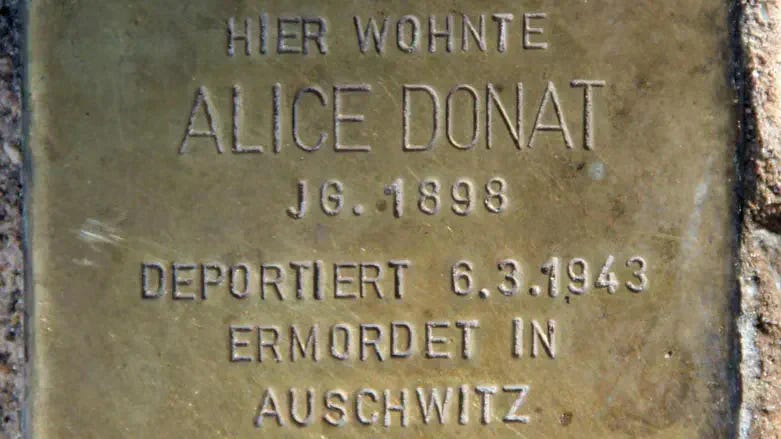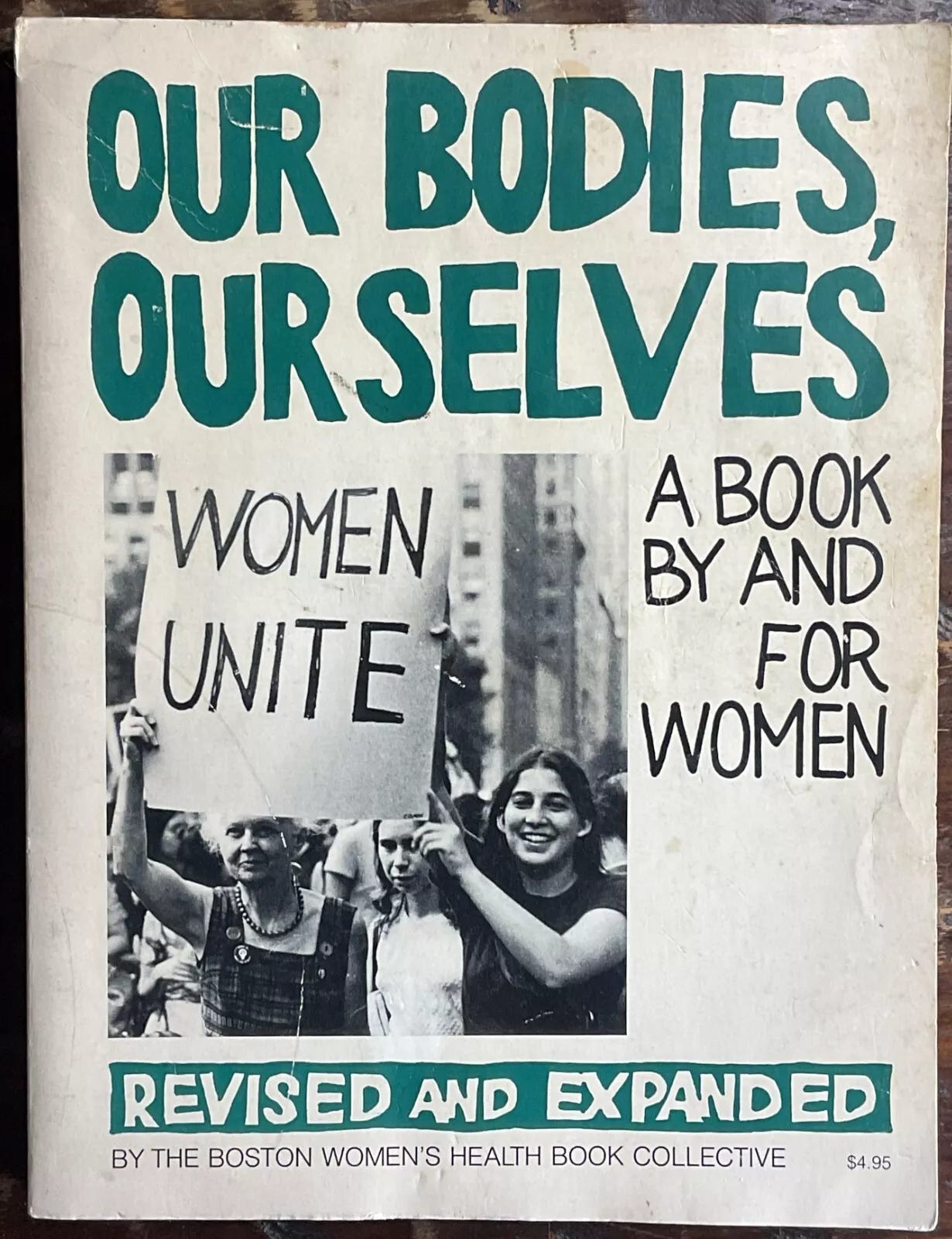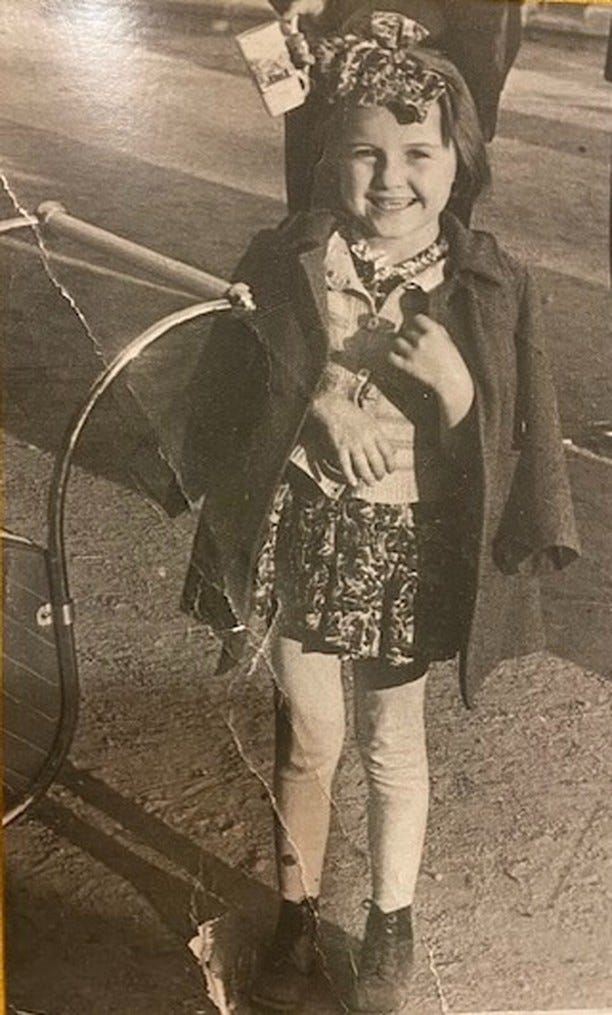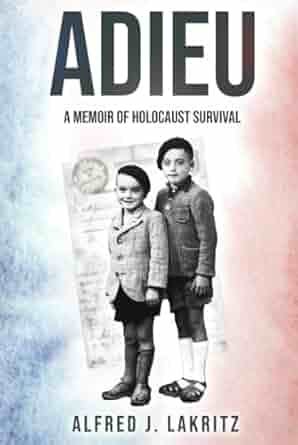For those of us who are interested in the Holocaust, memory, historical records, financial claims, DNA, and how they all shape our present moment, this was a busy week. It’s rare to see so much news on this front—so I’m sharing three pieces by other writers, and one of mine.
The first remarkable story comes from Berlin.
“A German court has ruled that an 85-year-old woman and her son who live in a property sold under duress by its Jewish owners in 1939 must give up their home,” Toby Axelrod reports for The Jewish Telegraph Agency. “For many paying attention to the twists and turns, the fight over the lakeside property came to symbolize the pain and turmoil of nearly a century of history — as well as the ways in which German families tell themselves complicated stories about their role during the Holocaust. It has also surfaced lingering resentments, some of them clearly antisemitic, about Germany’s efforts to repay Jews for its crimes against them.”
The Stolperstein, or stumbling stone, memorializing one of the original owners of the house in question.
This story received a lot of attention in Germany because it was featured in the newsmagazine Spiegel. It is likely one of the last cases like this. While these stories are always devastating, I find the particular details of this one—the original Jewish owners ran an orphanage—especially moving.
“The case centers on an estate, located in a bucolic area about 20 miles from central Berlin, that functioned in the 1930s as a summer retreat for an orphanage operated by two Jewish women, Alice Donat and Helene Lindenbaum,” Axelrod writes. “To comply with Nazi laws meant to expropriate Jewish wealth, they sold the land, complete with a structure in poor condition, to Felix Moegelin in 1939 for 21,100 Reichsmarks, a relative pittance.” (You can see what happened to Alice Donat in the Stolperstein image, above.)
The buyer had to sign a statement saying he was Aryan, and the two women had to sign a statement declaring that they were Jewish, per the Nuremberg laws. Read more here: German Woman Who Lives in Home Looted from Jews Must Give It Back
The Holocaust History of a Feminist Icon
The second incredible story comes from Boston and is featured in The Boston Globe. It has a tinge of feminist celebrity: one of the authors of the 13-member Boston collective that wrote Our Bodies, Ourselves, recently learned who she was, and how she survived the Holocaust. The other star of this story is DNA.
The story by Danny McDonald of The Boston Globe begins in mystery.
“Vilunya Diskin’s earliest memory is as a 4-year-old, traveling on a train through a country that no longer exists, being implored to stay quiet as she and others fled the genocidal violence convulsing much of Europe.”
Vilunya Diskin as a child. From Jennifer Mendelson’s Threads account. https://www.threads.net/@jennifermendelsohn1/post/DDIW04jS7NP
“In the early 1940s, authorities had consigned her parents to a Jewish ghetto in their hometown, now known as Lviv, but Diskin escaped their fate when she was left in the care of others. The antisemitic persecution continued even after the Soviet Army liberated the city from the Nazis, as they sought to arrest the rabbi who was taking care of her because he rescued Jewish children from orphanages. So they fled in the middle of the night.”
“What I remember is being very quiet, just not talking at all, because that’s what he told me to do,” she said of the train ride. It's Like a Rebirth: At 83, A Feminist Icon from Jamaica Plain Unravels a Family Holocaust Mystery
It’s not just the Holocaust portion of this story that is incredible—it’s what happened in Diskin’s life lately.
DNA, Detective Work, and the Shoah
It turns out that DNA may be the latest front in understanding the Holocaust and its long impact. After reading The Boston Globe’s reporting on how the Holocaust Reunion Project helped connect Diskin to her remaining relatives, I found myself looking through the project’s website. You may feel the same urge.
“The mission of the Holocaust Reunion Project is to harness the power of commercial DNA testing, combined with expert genealogical research, both to reunite Holocaust survivors and their children with living relatives and to illuminate the family history that has been lost to genocide,” the organization’s website states.
“The Holocaust devastated the Jewish community in countless lamentable ways. But its deepest cut was the literal rending of families: the loss of millions of irreplaceable parents, siblings, aunts, uncles, cousins. And while numerous agencies and organizations support survivors and honor the legacy of the Shoah in myriad ways, there is surprisingly very little focus or energy put towards restoring what was actually taken: family.”
With the project’s help, Diskin learns that the woman who sheltered her during the Holocaust—and then honored her father’s wish—gave her to a local rabbi, who then fled with his family across Europe and to the U.S. Then, Diskin was adopted by a Jewish family at age 7, and grew up in California. Only now, in her 80s, has she discovered her birth name—Wilhelmina Fliegelman—the full names of her parents, grandparents, and grandparents, and where they lived and worked. She has also learned the fates of her mother and twin sister.
I wanted to know a bit more. Jennifer Mendelson of the Holocaust Reunion Project shared some additional details on her Threads account about Diskin’s rescuer.
“She hid the little girl in her own home, where she was considered a cherished member of the family. The woman’s son sent Vilunya precious photos of her early years and showed her the faces of both of her parents for the first time. Their correspondence has been beyond life-affirming,” Mendelsohn writes.
It's a tale of trying to find answers and failing—and finally finding them late in life. If you would like to read the entire piece, send me a note and I’ll send you a PDF.
Holocaust Survivor and Olympian
The third story comes from Budapest, where Holocaust survivor and inspiring Olympian Agnes Keleti just passed away, a week before her 104th birthday. She survived under a false identity, working as a maid. “I was strong and I worked hard,” she said. “Nobody asked any questions.”
There is a New York Times obituary, but I recommend The Librarians blog at the National Library of Israel, which has a wonderful article about her, complete with fascinating archival material. (Don’t miss the fact that she was an Olympic gymnast at age 35!)
You can read it here: Who Is the Israeli Who Won 10 Olympic Medals?
My new review essay on a hidden child in France
I have a new review essay out in The Forward about an incredible memoir by a California lawyer who was a hidden child in rural France. Alfred Lakritz took many years to write this book, because he wanted to document and prove everything. This detailed look into how an 8-year-old and his 5-year-old brother survived comes with a blurb from the distinguished French-to-English translator Tina Kover.
I’m so grateful to Tina, translator of the award-winning novel Disoriental and so many other wonderful books, for her blurb—which alerted me to the importance of this book. It wasn’t easy to write this review essay, and I tried to present this material in a clear and compelling way.
ADIEU can change how you see France. You can read my review essay here: This devastating story of a hidden child during WWII will change how you think about France and the Holocaust
Group photo of Jewish children hiding in Evian, France—from Adieu by Alfred Lakritz.
After my trip to Germany, I have been thinking about all of these subjects and thought—maybe you are too. Shabbat shalom!
******************************************************************************************************
Hope you enjoyed this newsletter! Thank you for your support of writing with depth.









Thank you for amplifying how the lingering traces of history on those of us who are living descendants are relevant for all communities.
Fascinating!